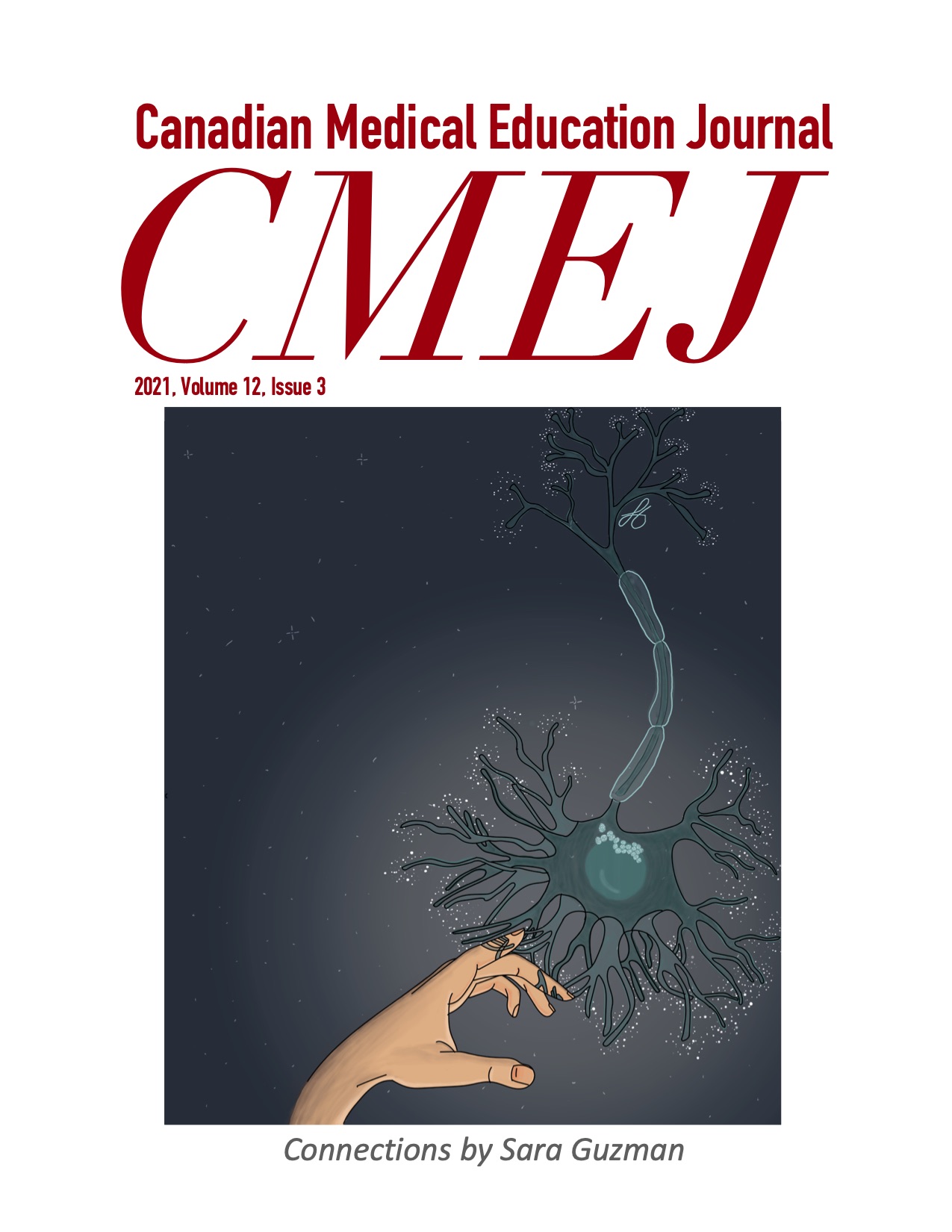Rehearsal simulation for antenatal consults
DOI:
https://doi.org/10.36834/cmej.71376Abstract
Background: Rehearsal simulations are patient-specific case-matched tasks performed immediately prior to the actual task, with the objective of improving performance.
Objective: How does rehearsal simulation for antenatal consults impact how residents learn to engage in difficult conversations with families?
Study Design: Residents in the NICU performed case-matched video recorded rehearsal simulations, followed by actual antenatal consults. The purpose of antenatal consults is to prepare parents expecting a complication with their baby before birth. Questionnaires assessed changes in resident confidence and self-assessment of communication skills. Residents were interviewed for qualitative data to explore the overall impact of rehearsal simulation on their learning and performance.
Results: Thirteen residents participated. Rehearsal simulation improved confidence with a more organized approach of medical content and better communication techniques, allowing for a shift of focus from a checklist approach to building rapport and displaying empathy.
Conclusions: While rehearsal simulation did not prepare residents for unexpected parent responses, trainees’ increased confidence with medical content organization and communication techniques created space for reflection-in-action and compassionate approaches.
Downloads
Published
Issue
Section
License
Copyright (c) 2021 Anita Cheng, Doris Yuen, Sayra Cristancho

This work is licensed under a Creative Commons Attribution-NonCommercial-NoDerivatives 4.0 International License.
Submission of an original manuscript to the Canadian Medical Education Journal will be taken to mean that it represents original work not previously published, that it is not being considered elsewhere for publication. If accepted for publication, it will be published online and it will not be published elsewhere in the same form, for commercial purposes, in any language, without the consent of the publisher.
Authors who publish in the Canadian Medical Education Journal agree to release their articles under the Creative Commons Attribution-Noncommercial-No Derivative Works 4.0 Canada Licence. This licence allows anyone to copy and distribute the article for non-commercial purposes provided that appropriate attribution is given. For details of the rights an author grants users of their work, please see the licence summary and the full licence.











